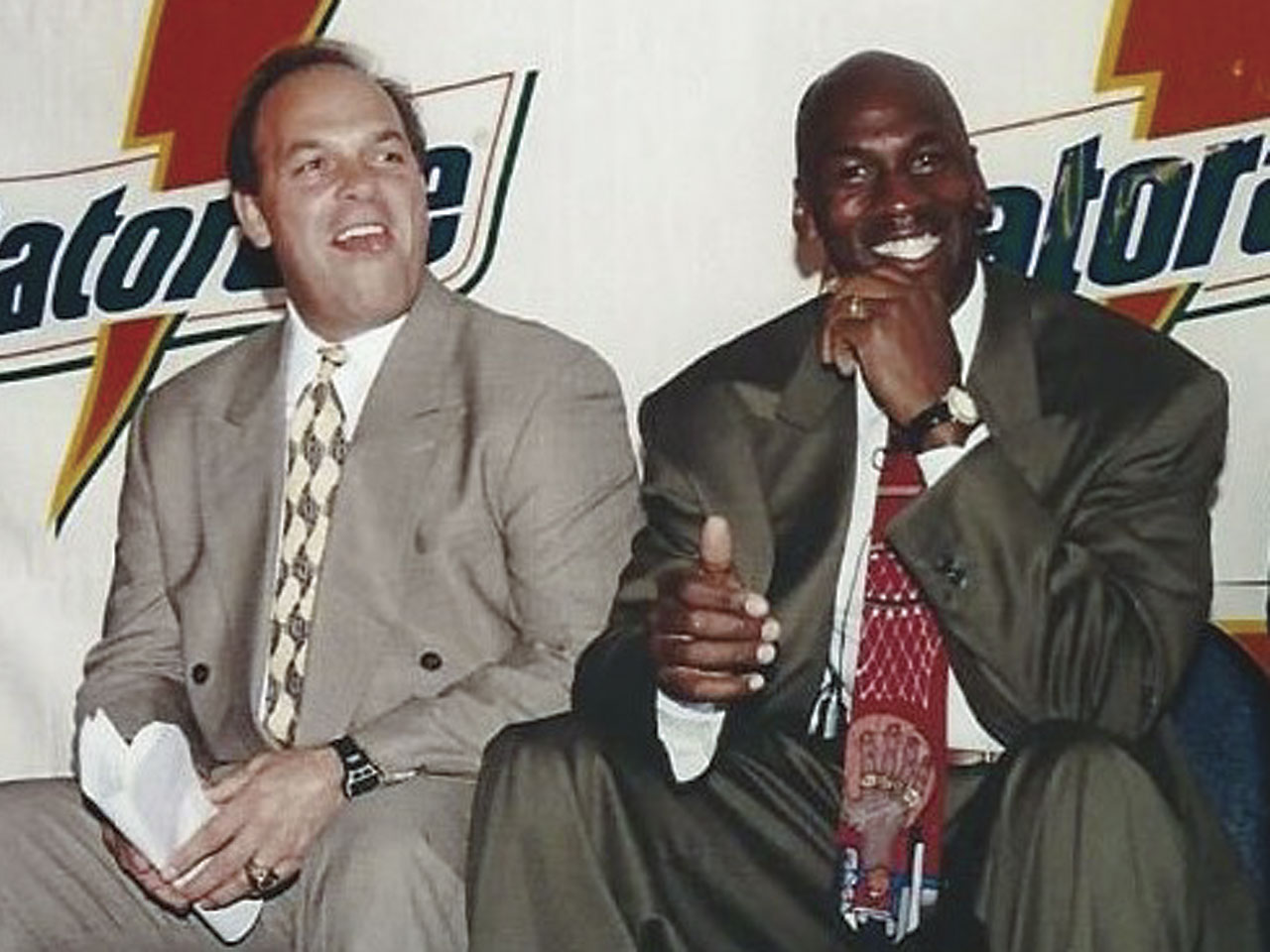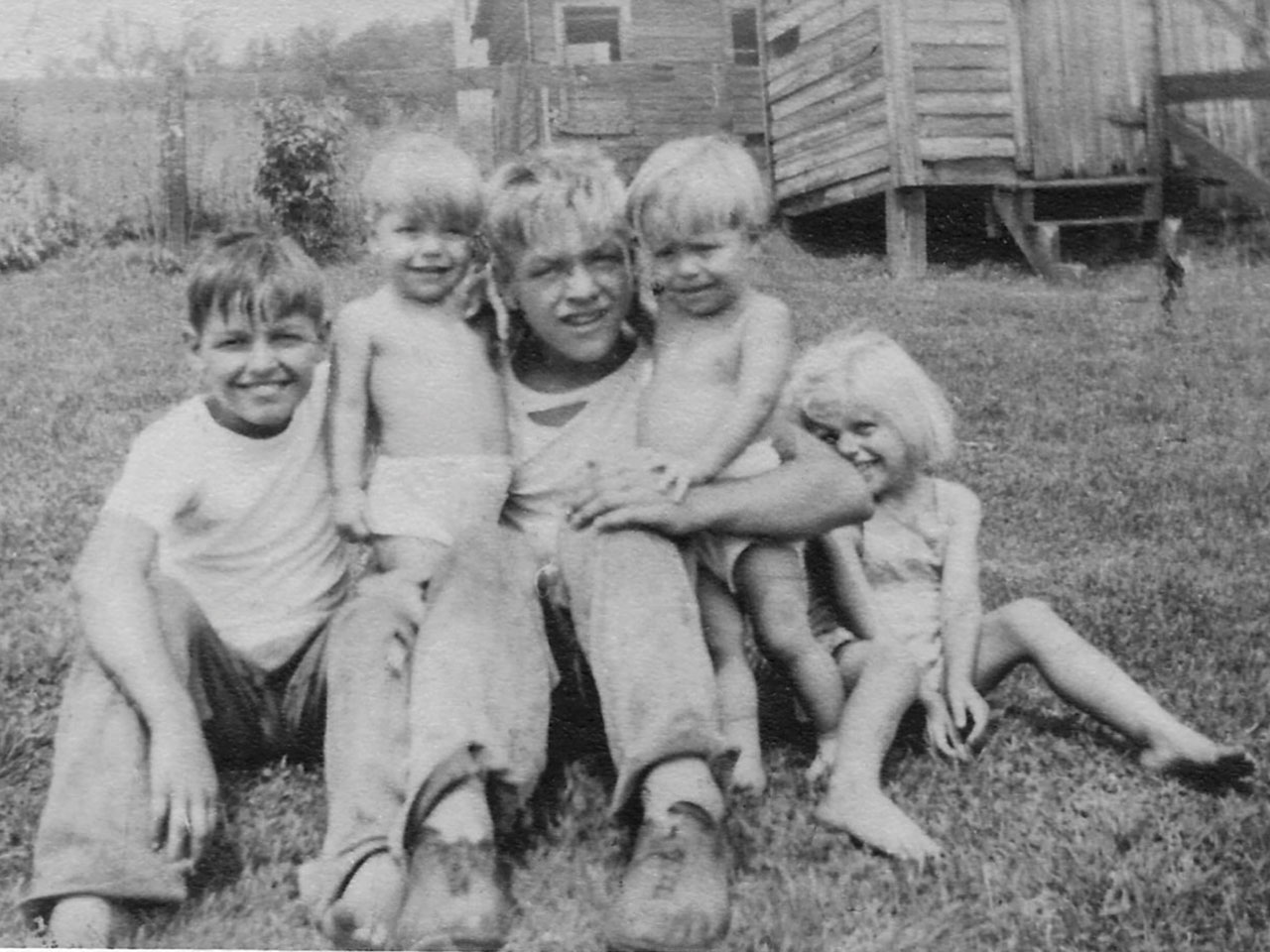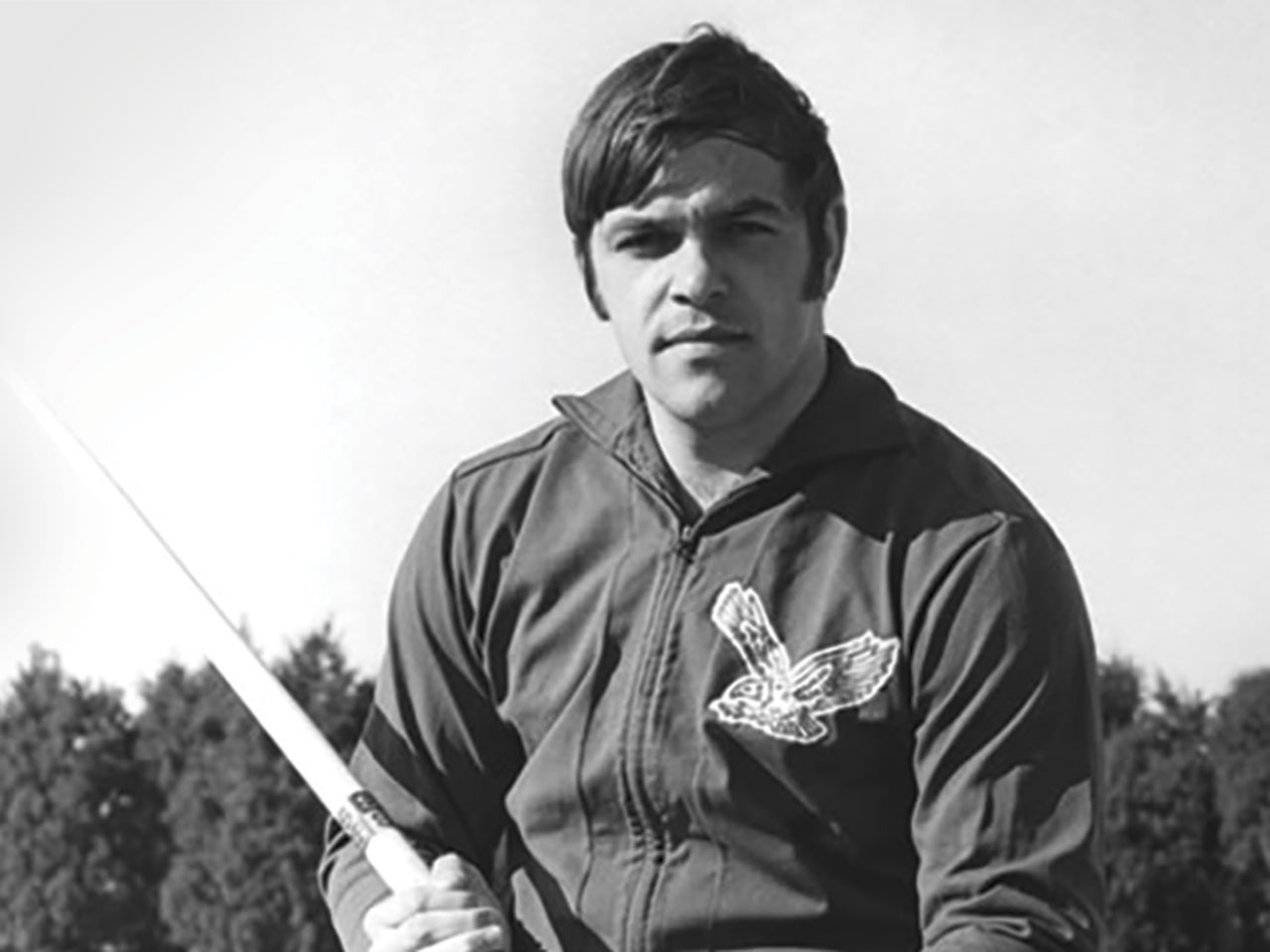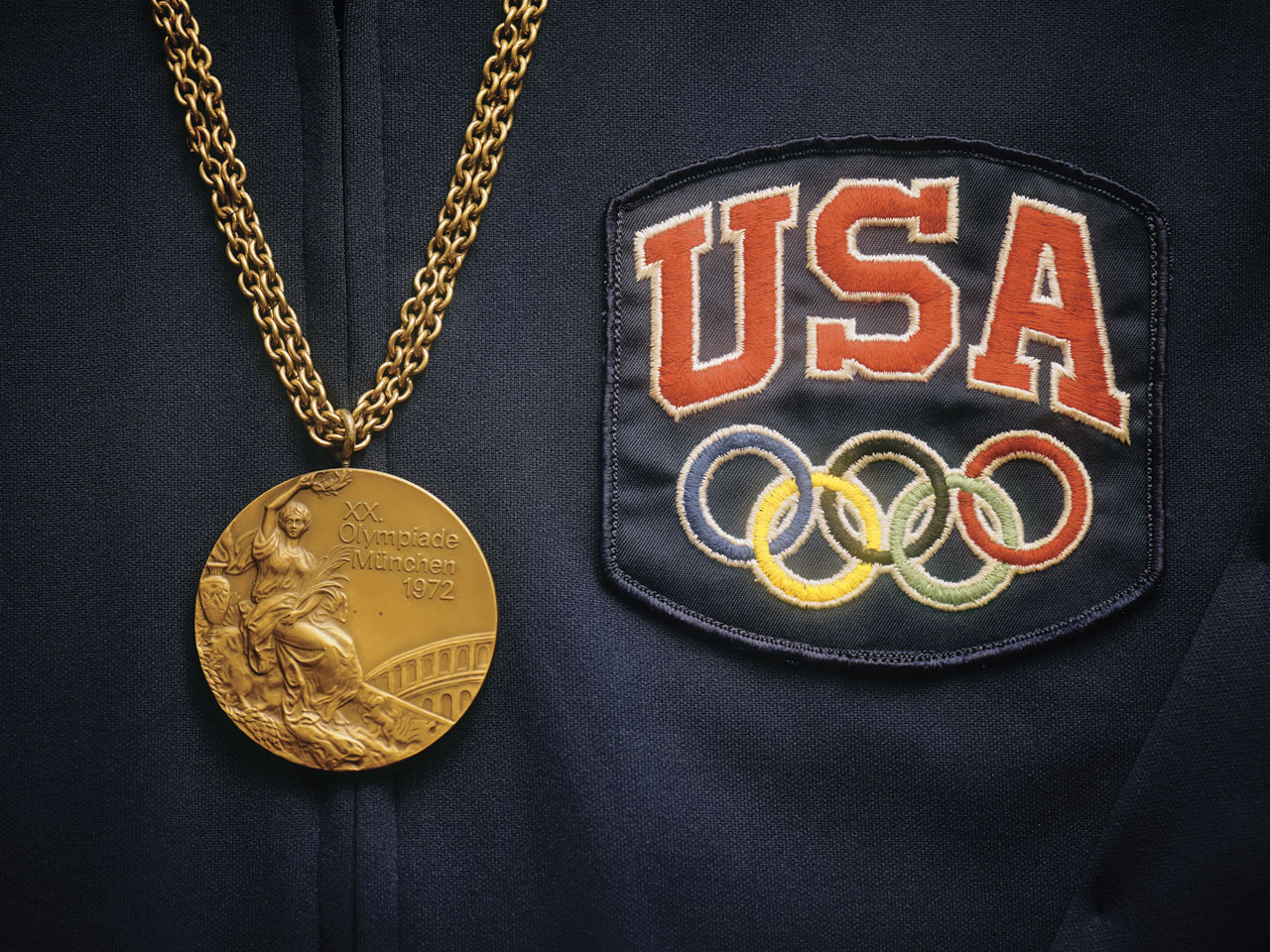With no javelin coach, Schmidt studied his competitors and taught himself. Despite
winning district titles, he graduated with no scholarship offers. So, he went to work,
first at a small metal and wood fabricator company and then with one of their clients.
Meanwhile, his high school track coach looked for colleges that needed a 200-foot
javelin thrower. He found one at North Texas.
Schmidt moved to Denton in 1966 as a walk-on athlete. He earned a partial scholarship
his sophomore year and a full scholarship as a senior. He recalled driving to competitions
with his coach, Winton "Pop" Noah, and how meets became a "family affair." He says
he competed for Pop as much as for himself.
"I'll prove myself if given the opportunity," he says.
In college, Schmidt earned All-American status and won some of the top meets across
the country. With a business administration degree in hand, he was drafted into the
U.S. Army in 1970, during the Vietnam War. He continued competing in the javelin and
set numerous military records. In 1972, he competed in the Olympics in Munich, Germany,
winning the bronze medal. It was the realization of a lifelong dream, although he
didn't think he actually could win the medal until the night before his final throw.
No American has medaled in the men's javelin competition since.
Next, Schmidt earned a master's in business education from the University of Tennessee
and taught and coached around Knoxville and at the university for a few years. Then
came the big break that would launch his marketing career: He was hired as sports
director for the 1982 World's Fair in Knoxville. With zero budget, he produced 23
events and ended with a $300,000 surplus. Gatorade sponsored one of the events and
that led to a marketing position. However, Schmidt was soon asked to run track and
field and boxing for the 1984 Summer Olympics in Los Angeles. He took a leave of absence,
accepted the position with no budget, and again ended with a surplus -- this time,
$225 million.
"It's not about being in the right place at the right time," he says. "It's expanding
on an opportunity that exists and growing it into something more meaningful and results
driven."
Schmidt returned to Gatorade as its first vice president of sports marketing. In 1984,
it was an $85 million brand; when he left 15 years later, it was $2 billion. He's
the reason Gatorade is synonymous with sports. He got the drink placed on sidelines
-- setting the stage for the famous Gatorade dunk. He's also behind the brand's iconic
"Be Like Mike" deal with Michael Jordan.




